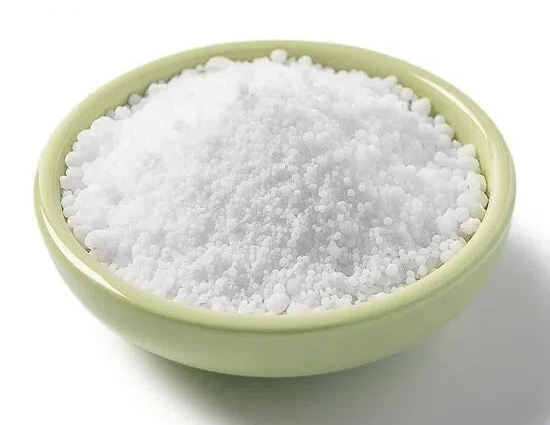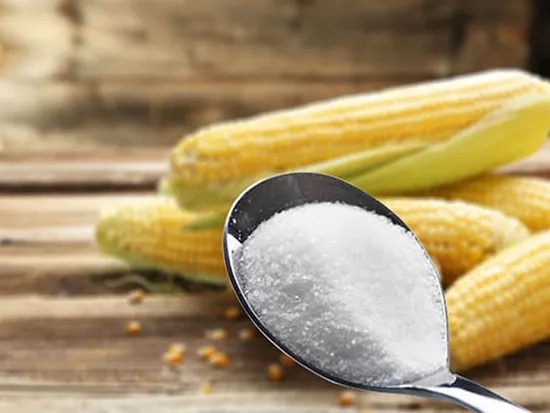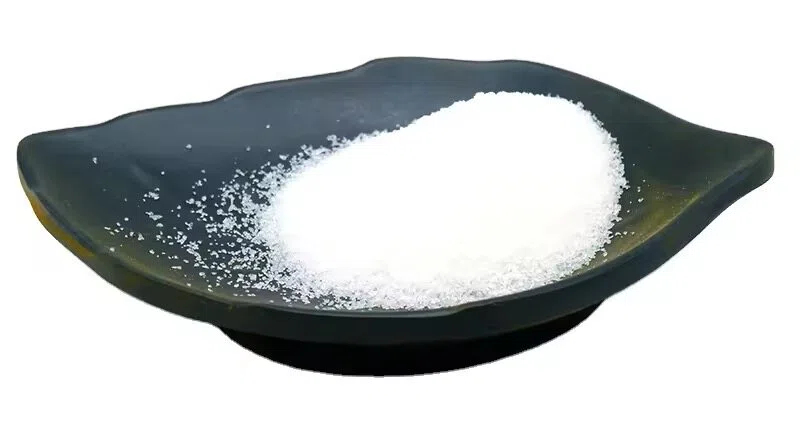Views: 222 Author: Sara Publish Time: 2025-10-27 Origin: Site








Content Menu
● What is Isomaltulose and Why It Matters
● Turkey's Position in the Global Isomaltulose Landscape
● Manufacturers and Core Capabilities
● Market Access and Distribution
● Applications and Formulations
● Quality Assurance and Regulatory Landscape
● Case Studies and Practical Insights
● Sustainability and Responsible Sourcing
● FAQ
>> 1. Isomaltulose vs sucrose: what are the practical health implications?
>> 2. What certifications should an overseas buyer look for in Turkish isomaltulose suppliers?
>> 3. Can Turkish manufacturers support private labeling or formulation development?
>> 4. Which product formats are commonly available from Turkish isomaltulose suppliers?
>> 5. How does Turkey's location benefit international buyers?
Isomaltulose is a natural disaccharide sugar alternative widely valued in the food, beverage, and healthcare sectors for its slow-digesting properties, stable flavor profile, and thermal resilience. Turkish isomaltulose manufacturers and suppliers have increasingly positioned themselves as credible partners for overseas buyers seeking high-quality isomaltulose, custom formulations, and end-to-end OEM/ODM services. This article provides an in-depth look at leading Turkish players, their capabilities, supply models, and strategic advantages in serving global markets. It also highlights practical considerations for buyers, including quality assurance, regulatory alignment, and logistics, to help international partners select reliable Turkish isomaltulose partners.

Isomaltulose (Palatinose) is a disaccharide composed of glucose and fructose linked by an α-1,6-glycosidic bond. This linkage confers slower enzymatic hydrolysis in the small intestine, resulting in a gentler and more sustained release of glucose. For manufacturers, this translates into products with lower glycemic impact, better energy stability, and enhanced mouthfeel in beverages and foods. Additionally, isomaltulose tends to retain sweetness and flavor integrity under heat, pH shifts, or during processing, making it an attractive option for clean-label and health-focused formulations. The Turkish market has aligned its production and supply chains to meet rising international demand, while emphasizing quality control, traceability, and flexible service models.[3]
Turkey sits at a strategic crossroads connecting Europe, Asia, and the Middle East, offering favorable logistics, competitive production costs, and a growing base of processors adept at handling functional carbohydrates. Turkish suppliers often combine traditional feedstock expertise with modern processing technologies, enabling the production of isomaltulose in bulk for beverages, powdered mixes, and nutraceutical formats. The export-oriented approach of Turkish manufacturers, coupled with OEM/ODM capabilities, makes Turkey a compelling sourcing option for international brands seeking private labeling and customized product development.[6][7]
What buyers typically look for are consistent product quality, scalable supply, and reliable regulatory compliance. Turkish isomaltulose producers commonly provide:
- Bulk commodity isomaltulose powder and crystals suitable for direct formulation or further processing
- Custom blends and carrier formulations for tablet, pill, or capsule production
- OEM/ODM services encompassing formulation development, sensory optimization, stability testing, and private labeling
- Private-label manufacturing for beverages and nutritionally fortified foods
Selected outlines of capabilities observed in the Turkish landscape include:
- Quality management: International standards alignment (ISO, HACCP, GMP) and third-party certifications where applicable, ensuring traceability from raw materials to finished goods.
- Process flexibility: Ability to adjust particle size, moisture content, and blend ratios to meet targeted applications—from ready-to-drink beverages to powdered mixes and nutraceuticals.
- Customer collaboration: Technical support for reformulation, stability studies, and regulatory documentation such as Kosher, Halal, and food-contact certifications, depending on customer requirements.
- Logistics and servicing: Efficient export logistics, including packaging customization, labeling compliance for different markets, and reliable distribution networks.

Turkish suppliers frequently support global distribution through a combination of direct export, regional distributors, and contract manufacturers that can integrate isomaltulose into client-specific formats. Buyers should assess lead times, minimum order quantities, scalability to peak demand, and the supplier's ability to provide turnkey solutions (from ingredient to finished product). Proximity to European markets can shorten transit times and reduce freight costs, while access to diverse port infrastructures supports broader regional reach. In addition, the growing prevalence of OEM/ODM services in Turkey enables rapid market entry for overseas brands seeking localized packaging and regulatory compliance aligned with target markets.[1][7]
Isomaltulose's slow-release energy profile makes it suitable for a variety of product categories, including:
- Beverages: Ready-to-drink beverages, sports drinks, energy drinks, and flavored waters that benefit from steady energy delivery and sweetness stability.
- Nutrition and dietary supplements: Functional powders and bar formulations that require stable sweetness and good mouthfeel.
- Diabetic-friendly and low-glycemic products: Foods and drinks designed to minimize glycemic spikes while preserving taste and texture.
- Pediatric and elderly nutrition: Formulations prioritizing gentler glucose release and palatability.
- Special medical nutrition: Products requiring reliable energy density and stable sweetness under thermal processing.
Sourcing considerations for Turkish isomaltulose include sourcing origin traceability, consistent particle size distribution, moisture control, taste profile consistency, and compatibility with other formulation ingredients such as polyols and dietary fibers. Suppliers may also offer related products such as isomaltulose-based molasses or by-products (e.g., functional carbohydrates) suitable for animal nutrition or specialized applications. BENEO and other global players have published information on the utility of isomaltulose in animal nutrition, which underscores broader product development opportunities for Turkish suppliers with appropriate processing capabilities.[8][3]
For overseas buyers, the credibility of a Turkish supplier rests on robust quality assurance programs and clear regulatory alignment. Key elements include:
- Documentation: Certificates of analysis (COA), material safety data sheets (MSDS), and technical data sheets (TDS) describing composition, impurities, moisture content, particle size, and shelf life.
- Certifications: ISO, HACCP, GMP, and, where applicable, Halal and Kosher certifications to match target markets.
- Traceability: Clear batch records and lot tracing from raw sugar to finished isomaltulose product, enabling recall readiness if needed.
- Compliance with food-contact and packaging regulations: Ensuring compatibility of packaging materials with isomaltulose formulations, especially for heat-processed products.
- Sustainability statements: Transparent sourcing and environmental stewardship in sugar supply chains, which increasingly influence procurement decisions for global brands.
The global isomaltulose market is characterized by steady demand growth driven by health-conscious consumer segments, expanding product formulations, and rising interest in low-glycemic sweeteners. Turkish suppliers are well-positioned to capitalize on these trends by offering flexible contract terms, accelerated product development cycles, and localized support for European and Middle Eastern markets. Strategic investments in R&D to optimize formulation compatibility and stability across beverage matrices, baked goods, and nutraceutical formats will further strengthen Turkey's competitive position. Partnerships with academic and industry organizations can accelerate innovation in processing efficiency, quality control, and sustainability.[4][9]
- Case Study A: A European beverage brand sought a private-label isomaltulose-based sports drink. A Turkish supplier with OEM capabilities provided a turnkey solution, including formulation optimization, sensory testing, stability studies, and compliant labeling. Lead times were shortened via direct port access and streamlined logistics, enabling a timely product launch in multiple markets.
- Case Study B: A nutraceutical company required a clean-label isomaltulose powder with precise moisture control for tablet compression. The Turkish partner supplied a customized powder with tight particle size distribution and low moisture, along with technical support for tablet formulation and scale-up.
- Case Study C: An animal nutrition client explored isomaltulose molasses as a functional carbohydrate source. The Turkish supplier offered BENEO-inspired concepts and tailored blends to meet taste, palatability, and digestibility goals in livestock feed formulations.
Buyers increasingly demand sustainable sugar supply chains and responsible processing practices. Turkish manufacturers are responding by highlighting:
- Transparent raw material sourcing and supplier audits.
- Energy efficiency in production, waste minimization, and responsible by-product utilization.
- Compliance with international environmental and social responsibility norms in industrial operations.
Turkey's isomaltulose manufacturers and suppliers have matured into capable partners for global food, beverage, and nutrition brands seeking high-quality, customizable, and reliably sourced ingredients. The Turkish advantage rests on a combination of strategic location, flexible OEM/ODM service models, strong quality systems, and a growing cadre of technical experts in functional carbohydrates. For overseas buyers, Turkey offers a compelling mix of technical capability, supply chain resilience, and competitive economics that support innovative product development across markets.

Isomaltulose digests more slowly than sucrose, producing less pronounced blood sugar and insulin responses, which can be advantageous for glycemic management in certain consumer groups. It also tends to provide stable sweetness and flavor integrity under processing conditions.[4]
Look for ISO and HACCP certifications as baseline, plus GMP, Halal, and Kosher certifications if required by markets. Third-party audits and COA documentation are also important for traceability.[7][3]
Yes, many Turkish suppliers offer OEM and ODM services, including formulation optimization, packaging design, and private labeling to meet specific market requirements.[7]
Common formats include bulk isomaltulose powder, crystalline isomaltulose, and tailored blends for tablet or beverage applications, with additional molasses by-products for certain uses.[3]
Turkey's strategic position provides relatively short and cost-efficient routes to Europe, the Middle East, and parts of Asia, enabling more favorable lead times and logistics planning for global brands.[6]
[1](https://patents.google.com/patent/US20050163903A1/en)
[2](https://patents.google.com/patent/US4670387A/en)
[3](https://www.beneo.com/animal-nutrition/animal-nutrition-products/functional-carbohydrates-an)
[4](https://www.sciencedirect.com/science/article/pii/S0963996922001181)
[5](https://www.academia.edu/88698676/Isomaltulose_Palatinose_An_emerging_carbohydrate)
[6](https://www.transparencymarketresearch.com/isomaltulose-market.html)
[7](https://www.beneo.com/sales-partners)
[8](https://ferreralimentacion.com/en/producto/isomaltulose/)
[9](https://www.databridgemarketresearch.com/reports/global-isomaltulose-palatinose-products-market)
